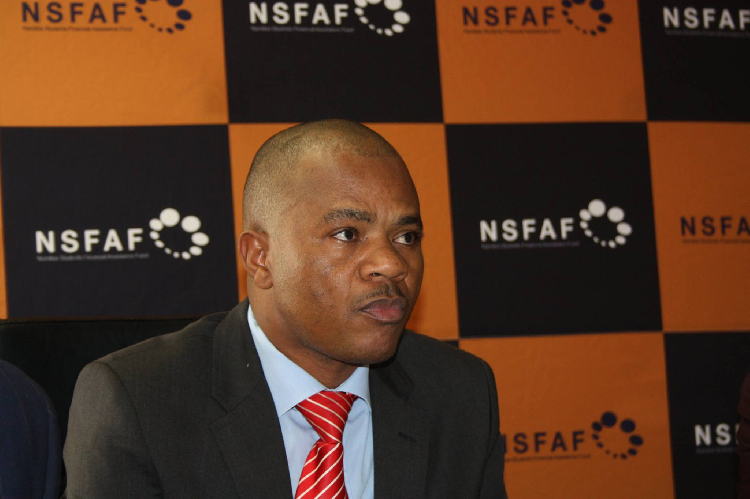Youth leader Bernard Kavau has called on the Namibia Students Financial Assistance Fund (NSFAF) to write off the remaining debts of those who have benefitted from NSFAF loans.
This comes after the entity recovered N$17.2 million of its N$20 million target for the 2023/2024 financial year.
“It’s best for NSFAF to write off all graduates’ loans, so that those who have graduated cannot be affected,” Kavau says.
Kavau says it is difficult for students and graduates to pay back loans, especially in the wake of Namibia’s youth unemployment rate.
He says an issue motivating students to not pay back their loans is the way the “government has been spending recklessly”.
Kavau highlights travel and other allowances given to parliament and Cabinet members.
“Look at the allowances that they give, be it to Cabinet members or parliament members, to the extent that they even give them dancing allowance. Government must definitely cut off the student debts, no one will lose out,” he says.
Namibia National Students Organisation (Nanso) president Dorthea Nangolo says NSFAF loans must not be considered loans but grants.
“The remaining loans and perhaps all loans that students owe NSFAF must be written off and the rest must be transformed into grants,” Nangolo says.
Nanso advocates alternative funding mechanisms, including using natural resource revenues, to support education without burdening students with debt.
According to Nangolo, profits made from the country’s natural resources must come into play when financing education and providing funding for NSFAF.
“We have oil discoveries, we have green hydrogen, we have mining activities that are happening. Why not take a percentage of their profits and let that go automatically towards education?” she questions.
The organisation, representing 200 000 members, maintains that loan repayments hinder socio-economic progress for young Namibians.

Nangolo says the revolving nature of NSFAF places an unfair burden on students and graduates.
“The model as it is, is unfair and perhaps unreasonable to our graduates because there’s a large number of our graduates that cannot afford it,” she says.
She says it results in incoming junior students not receiving funding because another graduate did not get a job or the job does not allow them to have the luxury of paying back a loan
Landless People’s Movement (LPM) Youth Command leader Duminga Ndala says students should not graduate burdened by debt.
According to Ndala, the proposal by Kavau to write off student debts could provide significant relief to young people weighed down by student loans, particularly given the current socio-economic realities.
“Many graduates face immense challenges in securing employment after graduation. However, the viability of this call hinges on the establishment of alternative mechanisms to ensure NSFAF’s sustainability and guarantee continued access to education funding for future generations,” she says.
For this to succeed, Ndala adds that the government must prioritise targeted relief by considering writing off the debts of unemployed graduates and individuals in low-income brackets.
LPM youth wing spokesperson William Minnie says NSFAF must awaken to the grim socio-economic realities its outdated loan policies have kept alive.
He says graduates are crushed under the weight of unemployment, skyrocketing inflation, and unchecked rent exploitation – all symptoms of an economy rigged against the majority.
“NSFAF’s insistence on debt repayment in this climate is not just tone-deaf; it is a betrayal of the very future it claims to invest in,” Minnie says
According to Minnie, this is a political crisis that demands immediate and radical intervention. He says NSFAF must abandon its “neoliberal debt-trap model” and embrace a grant-based funding system that recognises education as a public good, not a commodity.
Most importantly, he adds, NSFAF must write off all outstanding debts of former beneficiaries.
“To do otherwise is to condemn a generation to perpetual economic servitude and undermine the socio-economic fabric of our nation,” Minnie says.
NSFAF acting chief executive Kenneth Kandume says NSFAF was established to function as a revolving fund.
“As we know, that is the loan system… So I don’t want to comment on writing off the debt, but all I can say is that those who benefitted before must pay back.”
Stay informed with The Namibian – your source for credible journalism. Get in-depth reporting and opinions for
only N$85 a month. Invest in journalism, invest in democracy –
Subscribe Now!










